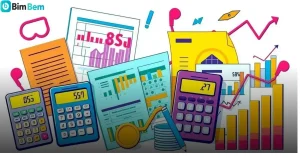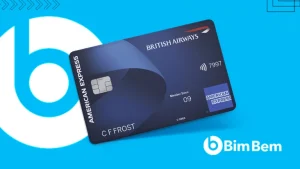Anúncio
Smart budgeting tips are essential for anyone who wants to gain control over their finances. Managing money wisely helps prevent unnecessary spending and builds a foundation for financial stability.
In today’s world, where expenses can rise quickly, having a clear plan makes all the difference. Budgeting allows you to track income, prioritize needs, and make better financial decisions daily.
Anúncio
If you’re ready to reduce stress and build a more secure future, keep reading to discover practical and effective smart budgeting tips that you can start using today.
Understanding Smart Budgeting Practices
Understanding Smart Budgeting Tips is crucial for achieving financial freedom. It starts with knowing where your money goes each month. By tracking your spending, you can identify patterns, make adjustments, and prioritize needs over wants.
Anúncio
One of the most practical Smart Budgeting Tips is creating a simple and realistic plan. List all your income sources and monthly expenses, including both fixed and variable costs. This helps balance your finances and allows you to save more consistently.
Reviewing your budget monthly is also one of the most effective Smart Budgeting Tips. Life changes constantly, and keeping your plan up to date ensures you stay on the right track. It makes managing your finances easier and more sustainable.
Key Benefits of Smart Budgeting Tips
-
- Improved financial control: By applying smart budgeting practices, you gain a clear understanding of your income and expenses. This control helps you avoid overspending and ensures that your money is being used intentionally.
- Reduces unnecessary spending: One of the major advantages is the ability to identify wasteful expenses. With a well-planned budget, you can easily spot where you’re overspending and redirect that money toward your priorities.
- Supports regular saving: Smart budgeting encourages the habit of saving. By planning your finances carefully, you can consistently set aside a portion of your income, helping you build an emergency fund or save for future goals.
- Minimizes financial stress: When you know exactly where your money is going and have a plan for unexpected costs, your stress levels decrease. Budgeting brings peace of mind and helps you feel more in control of your life.
- Increases financial awareness: Tracking your expenses forces you to be more mindful about daily financial choices. Over time, this awareness can lead to better habits and a more responsible approach to money management.
- Enables better planning: A smart budget helps you prepare not just for monthly bills, but also for long-term goals like vacations, investments, or buying a home. It gives you a roadmap to follow and adjust as your life changes.
Essential Tools for Effective Budgeting
To effectively manage your budget, having the right tools is essential. One of the best tools is a budgeting app. These apps help you track your income and expenses in real-time. They allow you to set goals for savings and remind you of upcoming bills, making it easier to stay on top of your finances.
Another useful tool is a spreadsheet. Whether you use Excel or Google Sheets, spreadsheets allow you to create a custom budget that fits your needs. You can easily input your numbers and see how much money is left for discretionary spending. This visibility helps you make informed decisions about where to cut back.
Pens and paper are also effective tools for budgeting. Writing things down can help you better understand your financial situation. Creating a physical budget tracker can keep you motivated and engaged with your finances.
By using these essential tools, anyone can become more effective at budgeting and unlock their financial freedom.
Creating a Realistic Budget Plan
Creating a realistic budget plan is the key to managing your finances effectively. Start by listing your monthly income from all sources. Knowing how much money you have coming in sets a solid foundation for your budget.
Be honest with yourself, and make sure to include any part-time jobs or side hustles.
Next, outline your fixed expenses like rent, utilities, and groceries. These costs are necessary and predictable, so they should take priority in your budget. After that, consider your variable expenses, such as entertainment and dining out.
Finally, don’t forget to leave room for savings in your budget plan. Saving money is just as important as spending wisely. Aim to set aside a percentage of your income each month.
By creating a realistic budget that includes both expenses and savings, you can work towards your financial goals with confidence.
Common Budgeting Mistakes to Avoid

One common budgeting mistake is underestimating expenses. Many people overlook small daily costs like coffee runs or streaming subscriptions. Smart budgeting tips recommend tracking every expense, no matter how minor, to get a realistic view of your spending habits.
Another mistake is failing to update your budget when your financial situation changes. Life events like job shifts or emergencies can affect your income and expenses. Smart budgeting tips emphasize the importance of regularly reviewing your plan and making adjustments when needed to stay on track.
Setting unrealistic savings goals is also a frequent issue. While it’s good to be ambitious, goals should be practical and attainable. According to smart budgeting tips, celebrating small milestones helps maintain motivation and builds confidence in your financial journey.
Tips for Sticking to Your Budget
Sticking to your budget requires discipline and planning. One effective tip is to set up automatic transfers to your savings account.
By automatically setting aside money each month, you prioritize saving before you even have a chance to spend it. This way, you can reach your savings goals more easily, while still enjoying your budgeted spending.
Another great tip is to track your spending daily. Use an app or a simple notebook to record every purchase. This habit keeps you aware of your financial habits and helps you recognize where you might be overspending.
When you see your expenses in black and white, it make it easier to stay within your budget limits.
Lastly, find ways to motivate yourself to stick to your budget. Reward yourself for meeting your financial goals, even if it’s a small treat or a fun activity.
Celebrating your achievements will keep you motivated and remind you why sticking to your budget is important. With these tips, you can successfully manage your finances and enjoy the freedom that comes with smart budgeting.
Check out our article on Personal Finance to learn effective strategies for managing your money, budgeting, and planning for a secure financial future.





